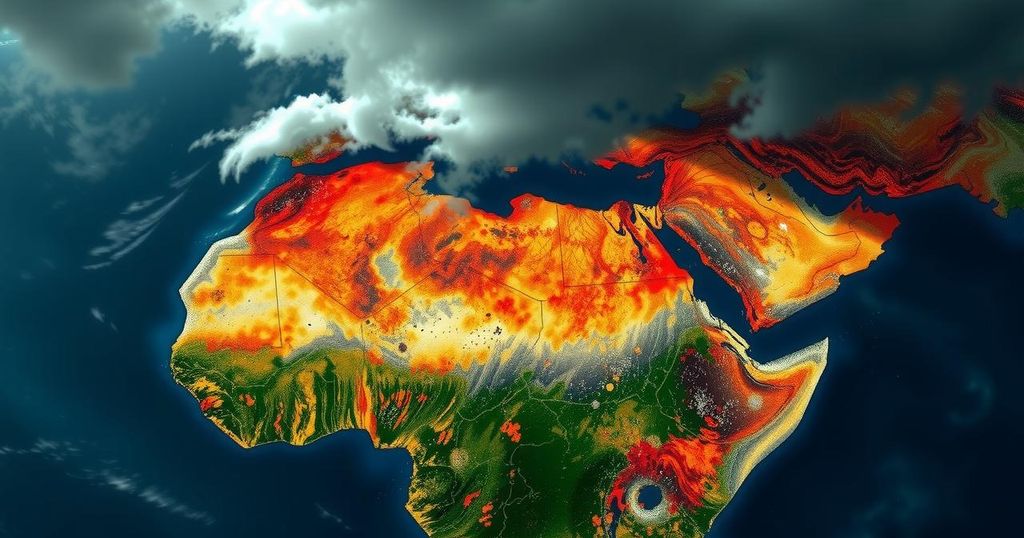A report by the World Meteorological Organization indicates that Africa is suffering significantly from climate change despite contributing only 4% of global greenhouse gas emissions. Experts warn that this has resulted in extreme weather events and intensified flooding across large parts of the continent, disrupting established climate patterns.
Recent findings from the World Meteorological Organization have emphasized that Africa, despite contributing a mere 4% of global greenhouse gas emissions, is disproportionately affected by climate change. The continent is currently experiencing a surge in extreme weather events, with increasing severity of flooding and unpredictable weather patterns dominating vast regions. Experts attribute these alarming changes in climate to the broader impacts of climate change, which have significantly disrupted established meteorological norms. This urgent situation calls for immediate attention and action as the effects of climate change continue to unravel the environmental stability in Africa.
Climate change presents an existential threat worldwide, with implications that vary significantly across different regions. Africa, although a relatively minor contributor to the planet’s greenhouse gas emissions, suffers immensely from the consequences of climate change. The continent’s vulnerability is exacerbated by factors such as high levels of poverty, limited adaptive capacity, and an over-reliance on climate-sensitive sectors, particularly agriculture. Recent reports and studies highlight that the alteration of weather patterns and the escalation of extreme weather events, including severe flooding, are increasingly being linked to these climatic shifts, making it imperative to understand and address this crisis in a region that bears little responsibility for its origin.
In conclusion, the evidence presented by the World Meteorological Organization illustrates the stark reality that Africa faces in light of climate change. While contributing minimally to global emissions, the continent endures severe consequences, including extreme weather phenomena and more devastating flooding. Addressing these issues is critical not only for the effective management of resources within Africa but also for global efforts to combat climate change as a collective challenge affecting all nations.
Original Source: www.wionews.com






